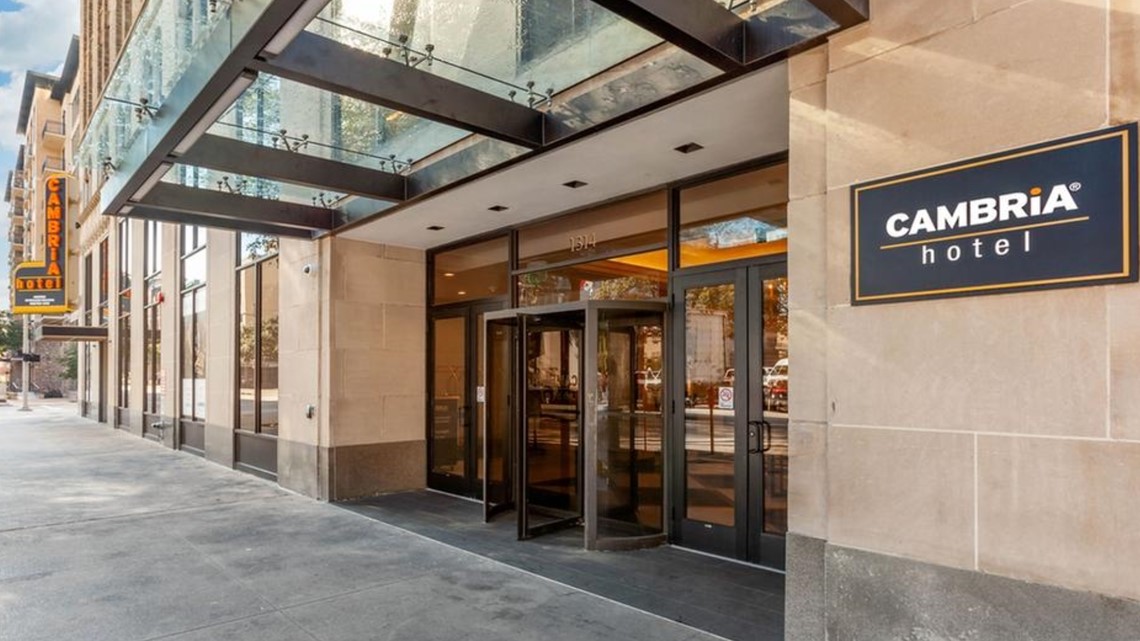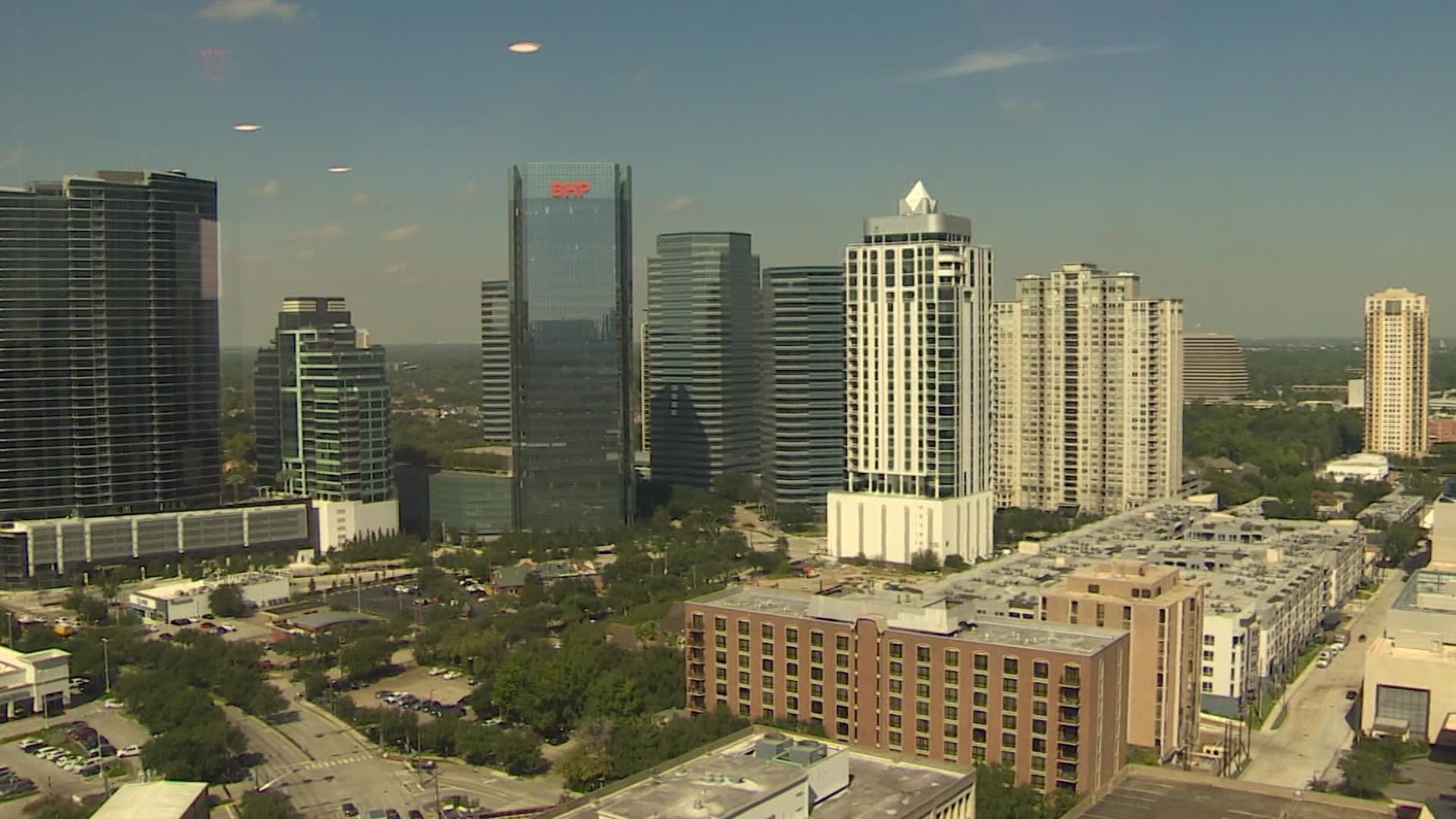HOUSTON — Downtown's Petroleum Building is one of Houston’s first high rises and is adorned with Mayan-inspired Art Deco details.
The 1926 building has a new use in 2021.
"The character in this building was amazing,” said Kristie Byrd, with management company Concord Hospitality.
That’s part of the reason developers transformed all 22 floors into a Cambria Hotel where guests stay in former offices now complete with modern comforts.
“I think it gives the guest an experience," Byrd said. "They can come here and stay and see some history of Houston.”
The Petroleum Building is one of a host of downtown office buildings converted to hotels or even residential units in recent years primarily in historic properties where tax credits are available.


"With boutique hotels becoming so popular, I think this is a way of the future for the hotel industry,” Byrd said.
Old buildings aren't the only ones getting a second look, especially post-pandemic.
Newer office spaces are also being reimagined.
"Everybody that tours it really does like it,” said Louann Pereira, with Transwestern.
Transwestern recently completed the renovation of spaces inside the 1980s-era 1800 West Loop South.
"It’s called Ventuno because it’s the 21st floor in the building,” Pereira said.
Pereira and fellow executive Matthew Seliger said improvements include things you can't see.
"We’ve done things like replacing the air filtration system," Seliger said. "That is a COVID-related specific improvement that we’ve done.”
According to recent industry analysis, nearly one-fourth of all office space in Houston is currently vacant.
KHOU 11 News has learned that about 100 full floors are up for grabs in the Galleria area.
"Who would think of a ski-lift in an office building space?" said Pereira as she showed us one of the most unique features in a common area.


Interesting and modern amenities are part of the strategy to attract companies and, in many cases, younger workers who prize culture and collaboration.
"The demise of the American office building is a bit overblown,” Seliger said.
It may be about adapting them to current and future needs.

